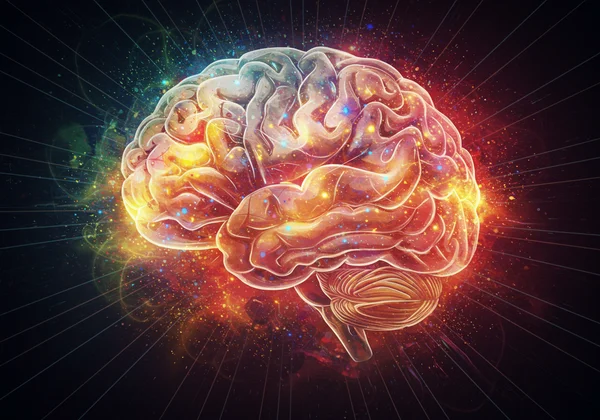After Your Neurodivergent Test: Understanding Results & Next Steps
November 11, 2025 | By Morgan Hayes
You’ve just clicked "submit" on a neurodivergent test, and a page of results is now in front of you. Taking that step required curiosity and courage, and it's completely normal to feel a mix of emotions right now—validation, confusion, relief, or even a bit of apprehension. Many people find themselves asking, what are the next steps after an online screening? This guide is here to walk you through that process, helping you understand your results, process your feelings, and navigate your journey of self-discovery with clarity and self-compassion.
This moment isn't about receiving a label; it's about gaining a new lens through which to view your experiences. It’s the beginning of a conversation with yourself, one that can lead to profound understanding and empowerment. Let’s explore what your results mean and what you can do with this new information. Your path to greater self-awareness starts now, and you can always revisit our resources by exploring our online tool.

Understanding Your Neurodivergent Test Results: What They Mean (and Don't)
Seeing your results can feel significant, and it’s important to place them in the proper context. The insights provided by a screening tool are designed to be a starting point, not a final destination. They are a mirror reflecting back patterns and tendencies you reported, offering a framework to understand your unique way of processing the world.
Deciphering Your Personalized Insights
Think of your results as a collection of personalized insights. They highlight potential traits associated with neurotypes like Autism (ASD) or Attention-Deficit/Hyperactivity Disorder (ADHD), based on the scenarios you identified with. Perhaps the results pointed to challenges with executive function, sensory sensitivities, or unique social communication styles.
This information can be incredibly validating. It might provide language for lifelong feelings you couldn't quite name. Instead of seeing these traits as isolated quirks, the results can help you see them as part of a coherent, interconnected neurological profile. This is a powerful step toward understanding why you thrive in some environments and struggle in others. Use these insights as clues to learn more about yourself.
The Crucial "Non-Diagnosis" Disclaimer: Setting Expectations
This is the most critical piece of information to remember: the Neurodivergent Test is a preliminary screening tool, not a clinical diagnosis. It is designed to promote self-awareness and provide a direction for further exploration. A formal diagnosis can only be made by a qualified healthcare professional, such as a psychologist, psychiatrist, or neurologist, through a comprehensive evaluation.
Our test helps you identify potential neurodivergent traits, but it cannot account for the full complexity of your life experiences, co-occurring conditions, or personal history. We are deeply committed to providing a responsible and trustworthy starting point. We strongly encourage you to view these results as a guide for a deeper conversation, whether that's with yourself, a loved one, or a medical professional. If your results resonate strongly, seeking a professional opinion is a logical and empowering next step.

Processing Your Feelings After Your Online Neurodivergent Screening
Your emotional response to the test results is completely valid, whatever it may be. For some, it’s a profound “aha!” moment that brings a lifetime of experiences into focus. For others, it might feel overwhelming or confusing. There is no right or wrong way to feel. This part of the journey is about giving yourself the space and grace to process these new insights.
From "Am I Just...?" to "This Explains So Much!" – Validating Your Experience
Many people who seek out a neurodivergence test have spent years asking themselves questions like, "Am I neurodivergent or just lazy/weird/anxious?" They may have been told they were "too sensitive" or needed to "try harder." Receiving results that suggest neurodivergent traits can be a powerful form of validation. It reframes these struggles not as character flaws, but as characteristics of a different type of brain wiring.
This shift in perspective can be life-changing. It allows you to let go of self-blame and begin to understand the underlying reasons for certain challenges. The feeling that "this explains so much" is a common and healing experience. It marks the transition from self-criticism to self-understanding, which is a cornerstone of embracing your identity.
Embracing Self-Compassion: Your Unique Brain is Not a Flaw
As you process your results, practice self-compassion. Your brain is not broken, wrong, or flawed—it is uniquely yours. Neurodiversity is the concept that differences in brain function and behavioral traits are a natural part of human variation. Your potential neurodivergence comes with its own set of strengths, perspectives, and talents that a neurotypical brain might not possess.
You might have incredible focus on your passions, a unique creative flair, a strong sense of justice, or an ability to see patterns others miss. Give yourself permission to explore these strengths. This journey is not about "fixing" yourself, but about learning how to work with your brain to create a life that is authentic and fulfilling. If you're starting this exploration, our screening tool can be a great first step.

Practical Next Steps: What to Do After Your Neurodivergent Test
Now that you have these initial insights, you might be wondering what to do next. The path forward is personal, but here are some practical, empowering steps you can take to continue your journey of self-discovery.
Deepening Self-Reflection: Journaling & Observation
Start paying closer attention to your daily experiences through the lens of your test results. Self-reflection is a powerful tool. Keep a journal and note situations where you feel energized and capable, and times when you feel drained or overwhelmed.
Ask yourself questions like:
- What environments help me focus best?
- What sensory inputs (sounds, lights, textures) affect my mood?
- How do I prefer to communicate and socialize?
- When do I feel most authentically myself?
This process of observation will provide you with concrete, personal data that goes far beyond any online test. It helps you build a user manual for your own brain.
Discussing Your Results with Trusted Allies
Sharing your results can be a vulnerable step, so choose wisely. You might consider talking to a trusted friend, family member, or partner—someone you know will be supportive and open-minded. Explain that you took an online screening as part of a self-discovery process and that it offered some interesting insights.
You don't have to share everything at once. You could start by discussing a specific trait that resonated with you. Having an ally who understands and validates your experience can reduce feelings of isolation and help you feel more confident in your journey.
When to Seek Professional Evaluation for Neurodivergence
If your results from the neurodivergence test resonate deeply and you believe a formal diagnosis would be beneficial, seeking a professional evaluation is the next step. A diagnosis can provide access to legal protections, workplace accommodations, and tailored therapeutic support. It can also offer a definitive sense of clarity and validation.
To find a professional, you can start by asking your primary care doctor for a referral to a specialist who has experience with adult neurodivergence assessments. Look for clinicians who are affirming of neurodiversity and use up-to-date assessment methods.

Continuing Your Neurodivergent Journey: Resources & Support
Your journey doesn't end with a test result or even a diagnosis. It’s an ongoing process of learning, adapting, and connecting. Building a support system and continuing your education are key to thriving.
Connecting with Neurodivergent Communities & Advocacy Groups
One of the most powerful steps you can take is to connect with other neurodivergent people. Hearing about the lived experience of others can be incredibly affirming. Online forums, social media groups, and local meetups can provide a sense of belonging and community you may have been missing. Organizations like the Autistic Self Advocacy Network (ASAN) and Children and Adults with Attention-Deficit/Hyperactivity Disorder (CHADD) offer valuable resources and advocate for the neurodivergent community. Finding your people can make all the difference.
Explore More Content on Neurodiversity & Support
We are here to support you beyond the initial test. Our website is a growing resource hub designed to educate and empower. We invite you to explore our blog and FAQ section to learn more about specific neurodivergent traits, discover life strategies, and read stories from the community. Continue your journey of discovery by exploring our helpful resources. Your curiosity is your greatest asset, and we are here to fuel it every step of the way.
Your Journey of Self-Discovery Has Just Begun
Taking a neurodivergent test is a significant and personal step. Remember that your results are not a final verdict but an invitation—an invitation to understand yourself more deeply, to practice more self-compassion, and to connect with a vibrant and diverse community. This is your journey, and you get to decide the pace and the path. Embrace the process, stay curious, and know that understanding your unique neurological profile is a powerful act of self-acceptance.
Ready to begin or revisit your exploration? You can take the test anytime to reflect on your traits.
Frequently Asked Questions After Your Neurodivergent Test
How do you get officially tested for neurodivergence after an online screening?
After using an initial tool like our neurodivergent test, the next step for an official diagnosis is to consult a qualified healthcare professional. This typically involves contacting your primary care physician for a referral to a psychologist, psychiatrist, or neurologist who specializes in adult ASD, ADHD, or other neurodevelopmental conditions. The evaluation process is comprehensive and may include detailed interviews, clinical observations, and standardized assessments.
Can you be neurodivergent without having ADHD or autism?
Absolutely. Neurodiversity is a broad umbrella term that encompasses many different conditions. While autism and ADHD are among the most discussed, neurodivergence also includes dyslexia, dyscalculia, dyspraxia, Tourette’s syndrome, and others. It's possible to have traits that align with the broader neurodivergent experience without fitting neatly into one specific category. Our free screening is designed to explore a wide range of these traits.
Am I neurodivergent, or am I just [anxious/lazy/weird]?
This is a very common question. Often, traits associated with neurodivergence—like executive dysfunction (which can look like "laziness") or different social needs (which can be labeled "weird")—can cause anxiety when they are misunderstood or unsupported. An online test can help you see if there is a consistent pattern to your experiences that aligns with a neurodivergent profile, shifting the frame from a moral failing to a neurological difference.
What are some strengths often associated with a neurodivergent brain?
Neurodivergent brains come with many unique strengths! These can include hyperfocus (an intense concentration on subjects of interest), exceptional creativity and problem-solving skills, strong pattern recognition, a deep sense of empathy, and unwavering loyalty and honesty. Exploring your potential neurodivergence is not just about understanding challenges but also about discovering and honing your unique talents. Start your journey today to learn more.